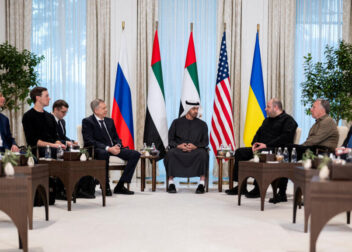INDIA Bloc Locks Horns with EC Over Election Transparency
The Indian National Developmental Inclusive Alliance (INDIA), a coalition of opposition parties, has intensified its scrutiny of the Election Commission of India (ECI) over concerns about electoral transparency, particularly regarding voter roll revisions and access to election-related data. This clash, unfolding ahead of crucial state assembly elections, underscores deeper tensions about the integrity of India’s democratic processes. The opposition’s allegations, met with rebuttals from the ECI, have sparked a heated debate about fairness and accountability in the world’s largest democracy.
Recent reports highlight the INDIA bloc’s focus on the Special Intensive Revision (SIR) of voter rolls in Bihar, a state gearing up for assembly polls later this year. Opposition leaders, including those from the Congress and Rashtriya Janata Dal (RJD), claim that the revision process risks disenfranchising millions, particularly from marginalized communities. They point to the removal of over 56 lakh voters from electoral rolls, arguing that it disproportionately targets minorities, Dalits, and opposition-leaning voters. Congress MP Manickam Tagore has called the process “an attack on democracy,” while RJD leader Tejashwi Yadav has labeled it a “huge conspiracy” aimed at skewing the electoral outcome. Protests outside Parliament, with posters declaring “Democracy is in danger,” reflect the opposition’s alarm.
The ECI, however, defends the SIR as a necessary exercise to ensure accurate voter lists. Chief Election Commissioner Gyanesh Kumar has emphasized that the process is transparent and inclusive, with over 57% of enumeration forms collected in Bihar. The ECI has also assured the Supreme Court that no voter’s citizenship will be canceled without due process. Official statements note that booth-wise voting data is shared with candidates post-polling, dismissing claims of secrecy. The ECI further argues that the opposition’s failure to attend requested meetings on the revision process undermines their accusations of foul play.
Another point of contention is the ECI’s recent amendment to election rules, which restricts public access to electronic documents like CCTV footage and webcasting from polling stations. The Congress has criticized this move, with general secretary Jairam Ramesh questioning why the ECI appears “afraid of transparency.” The opposition argues that such restrictions limit scrutiny and fuel distrust, especially in light of past controversies, such as delays in releasing voter turnout data during the 2024 Lok Sabha elections. In May 2024, INDIA bloc leaders met with the ECI to demand prompt publication of absolute voter turnout figures and action against alleged Model Code of Conduct violations by the ruling Bharatiya Janata Party (BJP). They cited discrepancies, such as a 5.74% increase in reported voter turnout compared to lower figures in 2019, raising questions about data reliability.
The ECI’s response to these criticisms has been twofold: it asserts its commitment to transparency while urging political parties to adhere to ethical campaign practices. In January 2025, the ECI issued an advisory directing parties to label AI-generated or synthetic content used in campaigns, aiming to curb misinformation. This move, while welcomed by some, has not quelled the opposition’s broader concerns about systemic biases. Experts note that the ECI’s autonomy has been under scrutiny since the 2023 passage of a law altering the appointment process for election commissioners, which critics argue gives the ruling government undue influence.
The ongoing dispute raises critical questions about the balance between electoral oversight and public trust. While the ECI maintains that its processes are robust, the opposition’s persistent allegations highlight a growing perception of vulnerability in India’s electoral framework. Political analysts suggest that resolving these tensions will require greater dialogue between the ECI and all stakeholders, alongside clearer communication of electoral processes to the public. As Bihar’s assembly elections approach, the outcome of this standoff could shape voter confidence and influence the national political landscape.
For now, the INDIA bloc shows no signs of relenting, with some leaders hinting at legal challenges or even poll boycotts. The ECI, tasked with upholding the integrity of India’s elections, faces the formidable challenge of addressing these concerns while maintaining its impartiality. As the nation watches, the resolution of this conflict will test the resilience of India’s democratic institutions.


